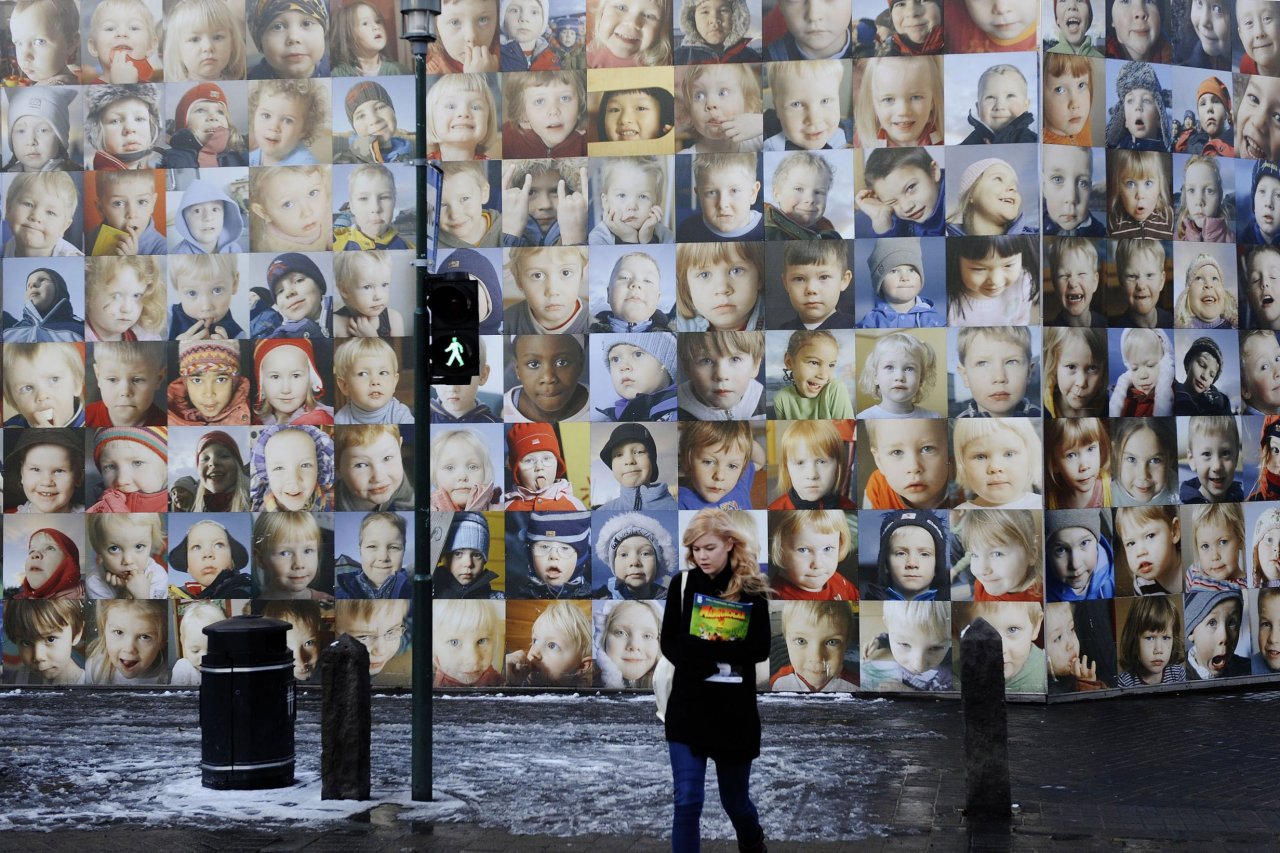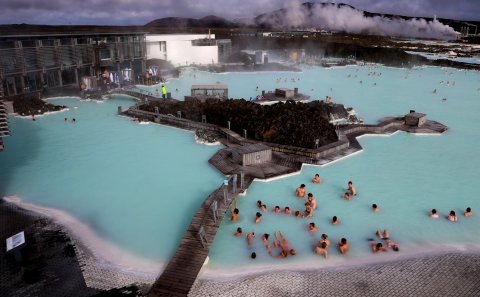
A nation known primarily for its stunning vistas and live volcanoes is poised to revolutionize global research on cancer and neurodegenerative disease. For that, the people of Iceland may credit the ingenuity of its researchers and the diligence of its historians, but above all they should applaud the tenacity of the 435 Vikings who descended on the island 1,000 years ago.
In recent years, genetic profiling and personalized treatment have been hailed as the future of health care, promising targeted therapy and tailor-made drugs for a range of conditions. Yet the effort has been complicated by a few fundamental facts about human genetic material: There's a lot of it, coming from lots of us, hailing from a lot of different places. Establishing a database from which to draw general conclusions about the behavior of diseases like cancer and Alzheimer's disease requires massive amounts of data collecting and analysis.
In addition, a vault of information can only get you so far. In order to truly understand how a disease expresses itself in a population, you also need a handle on that population. "Knowing the genealogical links and distance between any two people is obviously crucial for much genetic work," says Gísli Pálsson, a professor of anthropology at the University of Iceland. Luckily, in Reykjavik the recording of family trees has been a national sport for centuries—and the history of the country has resulted in a, genetically speaking, rather close-knit population.
Early historical records indicate that the area was more or less uninhabited when the ninth century Nordic chieftain Ingólfur Arnarson, spurred by a lack of arable land and a blood feud in his native Norway, took to the sea in search of an island that, to date, had only figured in rumors and legends. His band of Vikings landed on the empty island and settled in. Scholars generally agree that by the end of the era known as the Age of Settlement (about 874 to 930 A.D.), the island was home to about 20,000 new inhabitants, and all the usable land had been claimed. "Farmland was fully settled fairly soon, and immigration slowed down," says Pálsson. "During later centuries the population shrank as a result of difficult conditions, including cooling of climate, eruptions and plagues. Icelanders alive today mostly descend from the lineages that survived."
Today, the Icelandic government describes its 329,000 citizens as 93 percent ethnically Icelandic. To get an idea of how deeply ingrained Iceland's close-knit family tree is in the population's cultural and social consciousness, consider that there's an Icelandic dating app that allows users to cross-check potential connections against the nation's comprehensive genealogy records, so as to avoid going out for cocktails with a second cousin. "Bump the phone before you bump in bed," says Hakón Thrastar Björnsson, one of the creators of IslendingaAPP, which is basically Tinder fitted with what the developers call an "incest-alarm."
But 1,000 years of slow-to-nonexistent migration may soon become much more than a nuisance for Reykjavik's singles. Beginning in 1998, when Iceland's parliament passed a law allowing the sale of encrypted medical records to private companies, Dr. Kári Stefánsson and his colleagues at Reykjavik-based deCODE Genetics have been working on one of the most ambitious genetics-based research projects to date: compiling a database of the Icelandic population's entire genome.

"There's an Orwellian flavor to this," admits Stefánsson, a celebrated neurologist who has been pioneering genetic research for decades. At its most basic level, deCODE's study resembles a 21st century version of national documents like the Islendingabòk, an iconic, meticulous study of Iceland's early lineages dating back to the Middle Ages. DeCODE's Islendingabok.is, named after its 12th century ancestor and developed in collaboration with programmer Fridrik Skúlason, illuminates new variations and details about the nation's genetic blueprint while continuing a thousand-year-old tradition. Many can now trace their lineage back to the time of the settlement.
"Not only have we taken advantage of the records, but we have also expanded them and put them into user-friendly format in a computer," Stefánsson explains. He and his team have now sequenced the genome of 2,636 Icelanders and studied genetic information collected from another 104,220, meaning that a third of the country's population is directly involved in the project. This dataset has been combined with the nation's extensive medical records and detailed genealogies found in documents like the Islendingabòk. The results, which were detailed earlier this year in four articles published in the journal Nature, amount to a stunning picture of an entire nation.
These articles shed new light on the genetic workings of a range of serious conditions. For example, the discovery of a new gene variation that appears to protect against Alzheimer's disease could be used to derive a new treatment model for neurodegeneration and disease progression.
But the most significant feature of deCODE's research effort may be its capacity to yield insights into cancer epidemiology and biomarker discovery. Stefánsson gives the example of a mutation discovered in a gene called BRCA2: About 2,000 Icelandic men and women, or 0.6 percent of the nation's population, carry a nefarious gene variation in BRCA2 that results in a 4.6-fold increase in the lifetime risk of developing cancer. For men, at least 360 of the carriers will develop prostate cancer and can expect to die about seven years short of the national average for life expectancy. For women who carry this mutation, the health risks are even more dire: They are at an 86 percent probability of developing either breast cancer or ovarian cancer. Their life expectancy is 12 years fewer than noncarriers.
These insights can be applied to other populations, as well. DeCODE researchers, in a 2011 study of a gene linked to ovarian cancer among Icelanders, found that a rare "frameshift" mutation in the same gene was associated with an elevated risk of both ovarian cancer and breast cancer in a Spanish population sample. While 0.7 percent of Spanish ovarian cancer patients carried the gene variant, only 0.06 percent of control subjects did.
Preventive surgeries like mastectomies and hysterectomies can decrease that cancer risk significantly—and in Iceland, deCODE could theoretically notify all at-risk men and women. Although the personal records are currently encrypted, the Icelandic state holds the key to turn anonymous number sequences into names of real people. An invasion of privacy, some charge—but for many Icelanders, such an invasion could be the difference between life and death. "Here we have this insight into the genome of an entire nation," Stefánsson says. "Should we take advantage of this?"
For now, the information will remain a theoretical research tool. But experts agree that there will come a time when the world has to find a way to balance privacy and the greater good. Within five years, most nations in the Western world could be in the same position as Iceland, says Stefánsson, who reasons that deCODE's capacity to transform preventive care and personalized health care will inspire other nations to pursue similar population-wide research efforts. What we do with all this information is up to us. "Knowledge is never evil in and of itself," Stefánsson says. "You can use it for good, and you can use it for bad."
This article is one in a series from Newsweek 's 2015 Cancer issue, exploring challenges and innovations in cancer treatment and research. The complete issue is available online and at newsstands.














